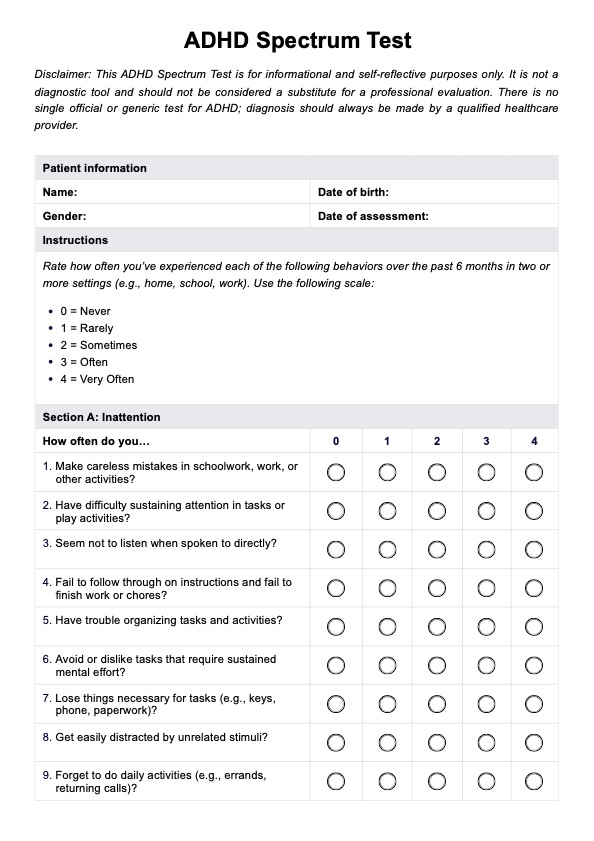No, there's no single "ADHD test" as it's a spectrum with various presentations. Diagnosis involves a comprehensive evaluation, including clinical interviews, questionnaires, and potential cognitive assessments.

ADHD Spectrum Test
Download Carepatron's free ADHD Spectrum Test to identify symptoms of inattention, hyperactivity, or impulsivity.
Use Template
ADHD Spectrum Test Template
Commonly asked questions
This refers to the broader approach of assessing for ADHD, recognizing its diverse manifestations. It goes beyond a binary diagnosis and helps identify the specific strengths and challenges within the spectrum.
While online tests can offer initial insights, they are unable to provide a definitive diagnosis or answer. They often rely on self-reported data and lack the clinical expertise required for accurate assessment.
EHR and practice management software
Get started for free
*No credit card required
Free
$0/usd
Unlimited clients
Telehealth
1GB of storage
Client portal text
Automated billing and online payments











